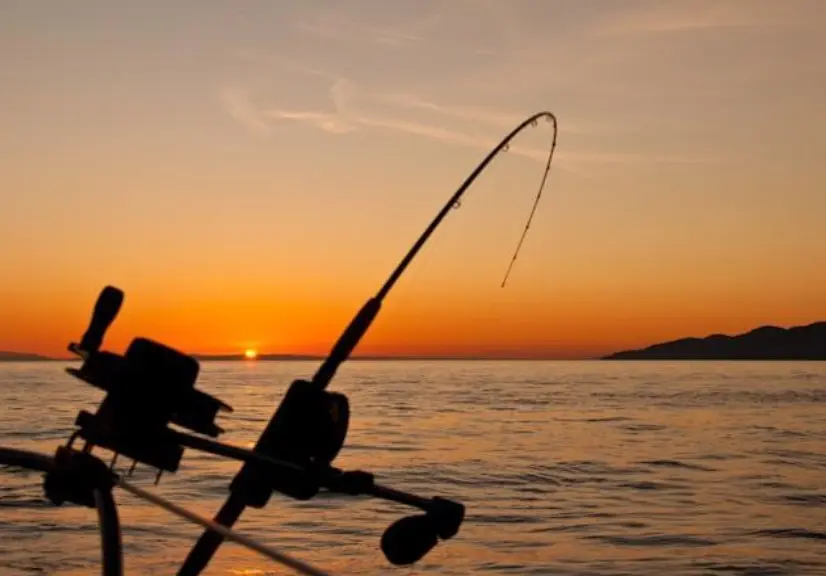
For many anglers, there’s nothing more satisfying than heading off the grid for a fishing trip. Whether you’re on a remote lake, deep in the wilderness, or far out at sea, fishing in untouched locations offers peace, adventure, and the thrill of a great catch.
However, venturing off the grid means leaving behind many modern comforts, so preparation is essential to ensure a successful and enjoyable experience.
From reliable equipment like lofrans windlass parts to personal comforts, staying prepared will allow you to focus on the joy of fishing while avoiding unnecessary challenges.
Powering Your Trip
Power is one of the first things to consider when planning an off-the-grid fishing trip. Without reliable access to electricity, essential tools like navigation systems, lighting, and communication devices can quickly become useless.
Being prepared with the right power sources ensures your trip runs smoothly.
For anglers using boats, having a dependable marine battery is a game-changer. A marine battery can power your devices, providing the longevity and performance needed for extended trips. Before heading out, ensure the battery is fully charged and bring a backup option to avoid being caught off guard.
Pack the Right Gear for Comfort
Comfort on a fishing trip can make the difference between a memorable adventure and a miserable experience. Start with the basics—clothing and gear suited to the weather conditions.
Layering is crucial, as temperatures often fluctuate between morning, afternoon, and evening. A moisture-wicking base layer, an insulated mid-layer, and a waterproof outer shell will keep you comfortable in any weather.
Invest in a sturdy, supportive chair for long hours by the water and a reliable sleeping setup if you’re camping overnight.
A compact tent, a high-quality sleeping bag rated for the appropriate temperatures, and an inflatable sleeping pad will ensure you’re rested and ready for the next day.
Food, Water, and Cooking Essentials
Being off the grid means you’ll need to provide for yourself, so pack plenty of food and water. Plan meals that are easy to prepare, require minimal cleanup, and won’t spoil quickly.
Non-perishable items like dehydrated meals, canned goods, trail mix, and jerky are reliable options for fishing trips.
Access to clean water is critical. Bring enough bottled water for the duration of your trip, or use portable water purification systems like filters or purifying tablets.
For cooking, a compact camp stove, a small set of utensils, and lightweight pots or pans will allow you to prepare simple, hearty meals.
Navigation and Communication Tools
Venturing off the grid often means losing cell service, so reliable navigation and communication tools are a must. A GPS device or a physical map of the area will help you track your location and navigate unfamiliar terrain.
For boat trips, ensure your marine GPS or navigation systems are updated with accurate charts.
Tackle and Equipment Organization
Properly organizing your fishing gear is key to a successful trip. Pack your rods, reels, and tackle boxes with the appropriate lures, bait, and tools for your fishing environment.
Research the area beforehand to determine what fish species are present and tailor your equipment accordingly.
Bring essentials like extra fishing line, hooks, pliers, a knife, and a reliable net. If you’re fishing from a boat, ensure your gear is secure to avoid losing valuable items overboard.
For shore or ice fishing, portable rod holders or sleds can help transport your equipment efficiently.
Stay Safe and Prepared for Emergencies
Safety should always be a top priority when fishing off the grid. Prepare for unexpected situations by bringing a well-stocked first aid kit that includes bandages, antiseptic wipes, pain relievers, and any personal medications.
For boat trips, ensure life jackets are available and in good condition.
Weather conditions can change rapidly, so check forecasts before departing and keep an eye on the skies while out. Carrying a small emergency shelter, like a tarp or space blanket, can be a lifesaver in unpredictable conditions.
Practice Leave No Trace Principles
One of the joys of off-the-grid fishing is experiencing nature in its purest form, and preserving that environment is essential. Clear up all trash, use biodegradable soaps for cleaning, and avoid leaving behind fishing line or gear that could harm animals. From reliable equipment like lofrans windlass parts to personal comforts, staying prepared will allow you to focus on the joy of fishing while avoiding unnecessary challenges.
Maintaining the natural beauty of these remote locations ensures they remain pristine for future generations of anglers to enjoy.
Enjoy the Simplicity of the Experience
Fishing off the grid offers the chance to disconnect from the demands of daily life and reconnect with nature. Whether you’re alone or sharing the experience with friends or family, the simplicity of the environment and the thrill of the catch create memories that last a lifetime.
Take time to enjoy the quiet, admire the surroundings, and embrace the challenges of living without modern conveniences. With the right preparation and mindset, an off-the-grid fishing trip can be both comfortable and rewarding.